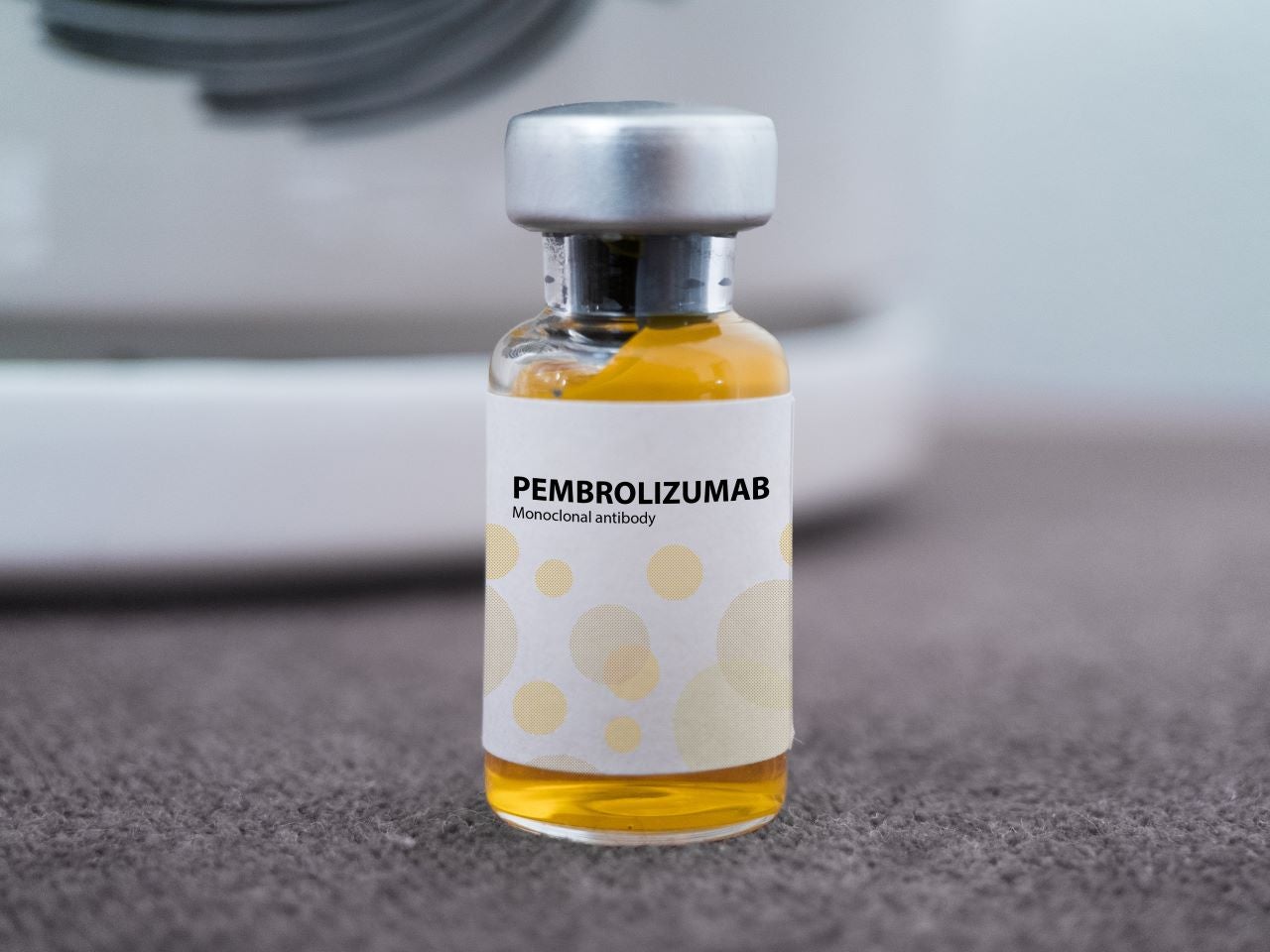On October 16, the FDA approved Merck’s Keytruda (pembrolizumab) for the treatment of patients with resectable stage II–IIIb non-small cell lung cancer (NSCLC) in combination with platinum-containing chemotherapy as a neo-adjuvant treatment following the KEYNOTE-617 trial results. This is the sixth approval for the blockbuster drug in this indication, which now ranges from neo-adjuvant treatment to late-stage metastatic treatment and the second approval for an immune checkpoint inhibitor (ICI) in the neo-adjuvant NSCLC setting after Bristol Myers Squibb’s (BMS’s) Opdivo (nivolumab) was approved in early 2022. NSCLC remains a target for novel therapies, as the five-year survival rate for stage IV patients is only 25% in the US.
Keytruda achieved positive results in both primary endpoints of the trial. The 24-month event-free survival (EFS) was 40.6% in the placebo arm, where patients received neo-adjuvant chemotherapy followed by adjuvant Keytruda. In the experimental arm, where patients received neo-adjuvant Keytruda in combination with chemotherapy followed by adjuvant Keytruda, the 24-month EFS was 62.4% (P<0.001). The 24-month overall survival (OS) was 80.9% in the experimental arm and 77.6% in the placebo arm (P=0.02). While the OS readout did not meet the significance criterion, it is trending in the right direction for Keytruda and may improve over time. Additionally, a complete pathological response occurred in 18.1% of the experimental arm and 4.0% of the placebo arm, showing that this regimen provides a significant benefit to a subset of patients.
On September 22, BMS published a press release teasing the results of the CheckMate-77T trial, which challenges its Opdivo (nivolumab) in the resectable setting, only without a PD-1 inhibitor in the adjuvant setting of the placebo arm, which the company promises to fully share soon.
It is unsurprising that competition is fierce in this indication considering the size of the patient population and the fact that both Merck and BMS are trying to gain an advantage in approvals. Having Keytruda’s use in the neo-adjuvant and adjuvant settings linked means that clinicians cannot prescribe the drug as freely as Opdivo, which has a more flexible approval.
However, Keytruda’s approval covers the stage IIIb NSCLC patient population, which Opdivo’s approval lacks. GlobalData’s NSCLC patient-based forecast estimates 2029 sales for Keytruda to reach $7.8bn in the eight major markets (US, France, Germany, Italy, Spain, UK, Japan and China), while Opdivo is forecast to have more modest sales of $1.3bn. Both Merck and BMS are developing subcutaneous formulations of their respective ICIs, expecting improved tolerability to increase sales, but their non-inferior efficacy remains unproven. Either way, this approval will boost Keytruda’s sales until its patent expires later this decade.

US Tariffs are shifting - will you react or anticipate?
Don’t let policy changes catch you off guard. Stay proactive with real-time data and expert analysis.
By GlobalData





